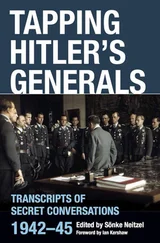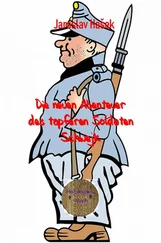In psychological terms, the inhabitants of the Third Reich were as normal as people in all other societies at all other times. The spectrum of perpetrators was a cross section of normal society. No specific group of people proved immune to the temptation, in Günther Anders’s phrase, of “inhumanity with impunity.” The real-life experiment that was the Third Reich did not reduce the variables of personality to absolute zero. But it showed them to be of comparatively slight, indeed often negligible, importance.
FRAME OF REFERENCE: THE THIRD REICH
Even as early as 1935, the vast majority of Germans would have been able to identify what was particular about the society of the Third Reich, and they would have contrasted it to the previous Weimar Republic: incipient economic improvement, enhanced feelings of security and orderliness, regained national pride, and an identification with the Führer would have been among those points. Precisely because of the radical distinctions perceived between the Third Reich and the Weimar Republic, often dismissed as an era of overly bureaucratic systems, this second-order reference frame was unusually conscious. Interviews with people from the time are full of statements about a “new” and “better” age dawning, in which the outlook was “pointing up again,” things were “moving forward,” young people were “getting off the streets,” a sense of “community” was becoming palpable. In terms of people’s historical experience, the years between 1933 and 1945 were much more clearly contoured than either the preceding Weimar Republic or the post–World War II reconstruction periods in either West or East Germany. That’s why it is easier to sketch out a frame of reference for the Third Reich than for comparatively calm periods. The Third Reich was a period with a remarkable density of experiences, full of change and characterized by an eight-year phase of radical euphoria and a four-year period of rapidly increasing fear, violence, loss, and insecurity. The fact that this period etched itself so indelibly into German history is not just due to Nazi crimes against humanity and extreme mass violence. It also has to do with the sense of being involved in something new and momentous, of working on a common National Socialist project. In short, people felt a part of a “great age.”
But the history of social mores and mentality during the Third Reich is usually viewed through the prism of the Holocaust—as though the end of a monstrously dynamic social process full of contradictory half developments and “path dependencies” (decisions or outcomes that depend on previous decisions or outcomes) can shed analytic light on the beginning of that process. This is understandable because the horrors inflicted by National Socialism are indelibly etched on our historical understanding of the movement and its campaigns of annihilation. But methodologically, such an approach is pure nonsense. No one would think of writing the biography of an individual from his death to his birth or of reconstructing the history of an institution from the back to the front. Developments are open solely toward the future, not the past. Only in retrospect do developments appear inevitable and compulsory. While they are still developing, social processes contain a rich variety of possibilities, of which only a handful are actually taken up, and they in turn create certain path dependencies and a dynamic of their own.
When we try to reconstruct people’s behavior within the reference frame Third Reich, we have to trace how they were “national socialized,” how the mélange of ideological desires at play when the Nazis came into power became part of revised social practice in Germany. We also need to look at what stayed the same after Hitler became German chancellor on January 30, 1933. Numerous critics have pointed out that we should not confuse the social reality of the Third Reich with the increasingly perfected images developed by the scriptwriters and directors in Joseph Goebbels’s Ministry of Propaganda. The Third Reich did not consist of an endless series of Olympic Summer Games and Nuremberg party rallies, of parades and pathos-laden speeches enrapturing young, blond, pigtailed devotees with tears in their eyes. The Third Reich consisted first and foremost of a multitude of mundane everyday factors that structure people’s lives in every imaginable society. Children attended school, and adults went to work or to the unemployment office. They paid their rent, did their shopping, ate breakfast and lunch, met up with friends and family members, read newspapers and books, and talked sports or politics. While all these dimensions of everyday life may have become increasingly tinged with ideology and racism over the twelve years of the Third Reich, they remained habits and routines. Everyday life is characterized by business as usual.
Despite the extreme nature of National Socialism, the citizens of Germany did not wake up in a completely new world on the morning of January 31, 1933. The world was the same—only the news was different. Sebastian Haffner, the well-known German journalist and historian, for instance, described the events of January 30 as a change of government, not a revolution, and the Weimar Republic had seen more than its fair share of changes of government. Haffner’s experience of January 30, 1933, consisted of “reading the newspapers, and the feelings they engendered.” {32} 32 Sebastian Haffner, Geschichte eines Deutschen. Erinnerungen, 1914–1933 (Munich: Der Hoerverlang GmbH, 2002), p. 105.
German newspapers discussed the possible consequences and significance of Hitler’s appointment as chancellor, but they did much the same with all other newsworthy stories as well. Haffner recounts conversations he had with his father, discussing what percent of the populace was truly Nazi, how foreign countries were likely to react, and what the working classes would do. In other words, the two men talked about all the things politically interested citizens discuss when confronted with unwelcome events whose ultimate ramifications are unclear. Haffner and his father, in any case, came to the conclusion that the Hitler government had an extremely weak foundation and thus a poor chance of lasting for long. All in all, they found, there was little real reason to worry.
To put the matter in different words: large parts of the existing frame of reference continued to function, and “life carrying on as usual” could be interpreted as a triumph over the Nazis. How could people have hit upon the idea in early 1933 that they needed an entirely new interpretation of reality, that what was happening was not something one could evaluate using customary criteria? Even if someone had sensed that the times were different, where would he have gotten the instruments to decode this new reality?
Social psychologists have clearly defined the phenomenon of “hindsight bias” for the belief, once the end of a social process is determined, to have known from the beginning how things would turn out. In retrospect, one can always find scores of indications for a nascent collapse or disaster. Contemporaries interviewed after the Third Reich all tell of their fathers or grandfathers exclaiming on January 30, 1933: “This means war!” {33} 33 Harald Welzer, Sabine Moller, and Karoline Tschuggnall, “Opa war kein Nazi”: Nationalsozialismus und Holocaust im Familiengedächtnis (Frankfurt/Main: Fischer, 2002), p. 75.
Hindsight bias allows people to position themselves on the side of foresight and knowledge, whereas in reality people who are in the midst of a process of historical transformation never see where that process is headed. To paraphrase Sigmund Freud, people who share an illusion can never recognize it. Only from a great distance can we achieve a perspective from which we can identify the misunderstandings and mistakes of historical actors. Even when one, two, or three levels of functionally differentiated social structure change, countless other ones remain exactly as they were before. In the early Third Reich, there was still bread in the bakeries, and the streetcars still ran. People were still studying toward university degrees and worrying about their sick grandmothers.
Читать дальше












